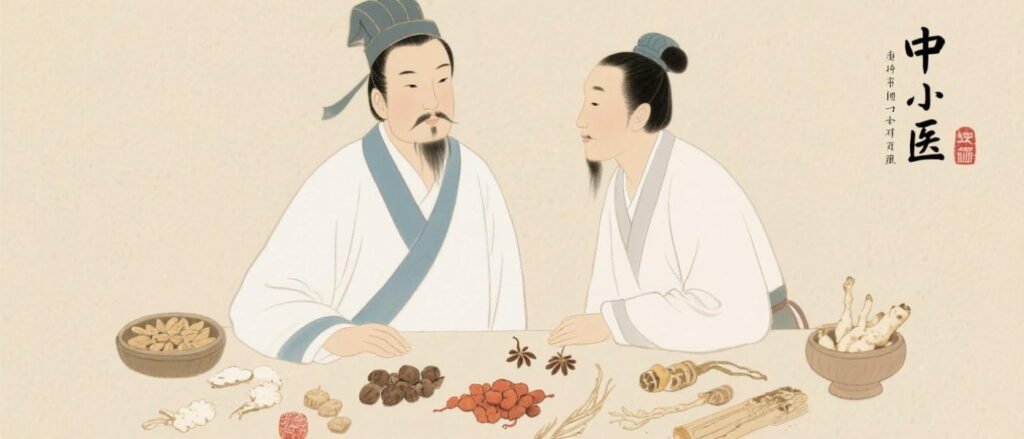My neighbor Li Xiyang lived east of my home, and we were close friends. In the autumn of the Gengshen year (a traditional Chinese calendar designation), his wife gave birth to a daughter. Mrs. Li had always produced abundant breast milk, and her previous children had grown strong and healthy. One day, while visiting their home, I found the newborn unconscious with a rasping, saw-like sound in her throat. I asked, “What’s wrong with the baby?”

Mr. Li anxiously replied, “She suddenly became like this this morning—refusing milk, not passing urine or stool, and her belly is swollen like a drum. It must be sudden convulsive syndrome (a pediatric emergency in traditional medicine)! She might not survive!”
After examining the infant, I noted: fever, profuse sweating, and a visibly distanced chest. I explained, “This is milk stagnation (rǔ jī, a traditional diagnosis where undigested milk accumulates). Purgation therapy will resolve it.”
Mr. Li’s cousin, Liang (who operated an herbal pharmacy nearby), was present. I immediately prescribed the Baiyu Bing (白玉饼, a traditional medicinal formulation) and instructed them to grind the herbs and administer the mixture. Within about half an hour, gurgling sounds arose from the baby’s chest, followed by multiple episodes of foul discharge. Her fever broke, and she awoke crying hungrily for milk.
I emphasized three feeding guidelines to Mrs. Li:
- Feed at a slow, steady pace
- Always sit upright while nursing
- Never breastfeed lying down—this prevents recurrence.
Mrs. Li laughed upon hearing this, confessing she had nursed lying down the previous night. Mr. Li sternly reminded his wife to follow proper feeding positions.



Leave a Reply